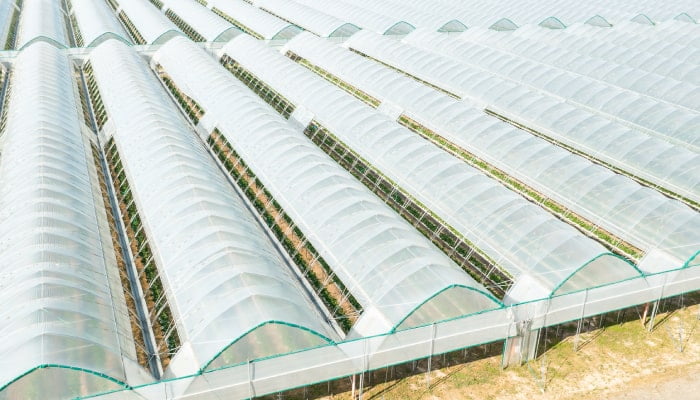In the realm of thermoplastics, few materials can rival the versatility and mechanical prowess of polycarbonate. Celebrated for its remarkable strength and flexibility, polycarbonate has carved a niche for itself across an array of industrial and home applications. At Stabilit America, a leader in providing top-tier polycarbonate solutions, the intricate dance of innovation with practicality is embodied in every product offered. This article delves into the core mechanical properties that make polycarbonate an indispensable material in modern manufacturing and design. From its notable impact resistance to its dynamic flexing capacity, we explore the science behind its robustness and the reasons why it remains a preferred choice in numerous applications.
What Is Polycarbonate?
Polycarbonate is a standout among thermoplastics, revered for its unique mechanical properties that are as versatile as they are robust. Its chemical composition, rooted in carbonates, imparts remarkable strength and resilience, allowing it to maintain clarity and toughness in equal measure. This balance of qualities has cemented polycarbonate’s role in various industries, making it a cornerstone for applications demanding both transparency and durability. The mechanical properties of polycarbonate are not just beneficial for their impact resistance and temperature stability but also for their contribution to innovation in the fields of safety, design, and efficiency. As we explore the mechanical properties of polycarbonate further, it becomes clear why companies like Stabilit America place great emphasis on this material’s transformative potential in both industrial and home environments.
Exploring Polycarbonate’s Mechanical Marvels
Polycarbonate is not just another entry in the catalog of industrial plastics—it’s a standout material that defies the conventional trade-offs between toughness and flexibility. Polycarbonate’s distinct traits catapult it into its own league, not just as a replacement option but as the go-to material for those in design and engineering.
Impact Resistance
Polycarbonate’s outstanding impact resistance is the cornerstone of its widespread acclaim in the materials sector. This tough thermoplastic has a high capacity for absorbing and withstanding shocks, a feature that is vividly showcased in its use for bulletproof and shatter-resistant glass. The intrinsic strength of polycarbonate arises from its molecular structure, which can dissipate energy upon impact, thereby resisting breakage and maintaining integrity under stress.
Flexibility
The flexibility of polycarbonate goes hand in hand with its strength, a duality that is rare in materials engineering. This flexibility allows it to be molded into various shapes and to return to its original form without damage, making it indispensable for products requiring a high degree of ductility. From the lenses in your glasses to the protective components in your smartphones, polycarbonate’s versatility is unmatched.
Temperature Resistance
Polycarbonate’s reliability extends to its performance under temperature extremes. This thermoplastic endures a broad spectrum of temperatures without deforming or losing its mechanical properties. Such robustness is essential for applications subjected to drastic thermal environments, underscoring the material’s suitability for everything from automotive parts to outdoor fixtures.
Durability Over Time
The longevity of polycarbonate is a hallmark of its durability. Resistant to abrasion, UV light, and weathering, it stands the test of time, ensuring that products made from it continue to function and look as intended well into the future. In an era where longevity equates to sustainability, polycarbonate’s durable nature aligns with Stabilit America’s vision of delivering long-lasting, high-quality products.
Polycarbonate in Industrial Applications
In the realm of industrial applications, polycarbonate provided by Stabilit America shines as a material engineered for excellence and durability. The mechanical properties of polycarbonate are particularly advantageous in settings that require long-term resistance to harsh chemicals and corrosive conditions.
High-Performance Industrial Uses
Polycarbonate panels offer unparalleled resistance to chemicals and corrosive environments, a necessity in high-spec industrial settings such as chemical and energy production plants. The material’s resilience is crucial in cooling towers, petrochemical, and mining operations, where it must withstand constant exposure to harsh substances. Furthermore, polycarbonate’s endurance in aggressive environments makes it an integral component in the infrastructure of water treatment facilities.
Commercial Applications
For commercial spaces like supermarkets, malls, and hospitality venues, polycarbonate provides a combination of low maintenance, durability, and aesthetic adaptability. It serves as an enduring material for retail chains and hotels, where frequent use demands longevity and visual appeal, and for business centers, where a balance of professional appearance and practical resilience is essential.
Institutional Implementations
Institutions such as offices, financial centers, and educational facilities require materials that offer both functionality and an appealing look. Polycarbonate meets these needs by ensuring a balance of high durability and visual quality, which is especially beneficial for spaces like museums and libraries that prioritize both structural integrity and design.
Architectural Applications
The versatility of polycarbonate extends to architectural projects, where it is employed for its clear and durable nature, offering design flexibility in sports facilities, transportation hubs, and cultural venues. Its ability to provide different levels of light transmission and diffusion makes it a practical choice for creating engaging spaces.
Agricultural and Greenhouse Coverings
In the agricultural industry, polycarbonate is indispensable for greenhouses and nurseries, where its properties like climate control, resistance to weathering, and longevity are vital. It enhances greenhouse durability, contributing to more sustainable farming practices by improving structural resilience and production efficiency.
Polycarbonate in Home Applications
The mechanical properties of polycarbonate make it an excellent material for residential use, offering durability and low maintenance for both indoor and outdoor applications. Its robustness is ideal for roofs over patios or terraces, providing long-lasting, weather-resistant coverings that allow light to permeate outdoor living spaces. Inside the house, its resistance to moisture and easy cleaning is beneficial for wall panels in service rooms like kitchens and laundry areas. Additionally, the material’s versatility is showcased in decorative panels that enhance home aesthetics without compromising on strength or upkeep. The mechanical properties of polycarbonate thus play a pivotal role in unifying function and form within the home environment.

Embrace Innovation with Polycarbonate
Discover the durable and versatile solutions that polycarbonate offers for your next project. Whether it’s for robust polycarbonate panels in industrial settings or enhancing your home’s aesthetics and functionality, Stabilit America is ready to assist. For detailed inquiries or to discuss your specific needs, feel free to contact us. Join the myriad of satisfied clients leveraging the mechanical properties of polycarbonate for their building solutions.
Stabilit America Inc. is a leading North American manufacturer of fiberglass reinforced panels (FRP) and polycarbonate sheets, with over 65 years of experience. The company offers the widest range of acrylic, polyester, and polycarbonate laminates, backed by international certifications (USDA, Greenguard, FM, ISO 9001, among others), serving industries such as industrial construction, transportation, and sustainable building.


